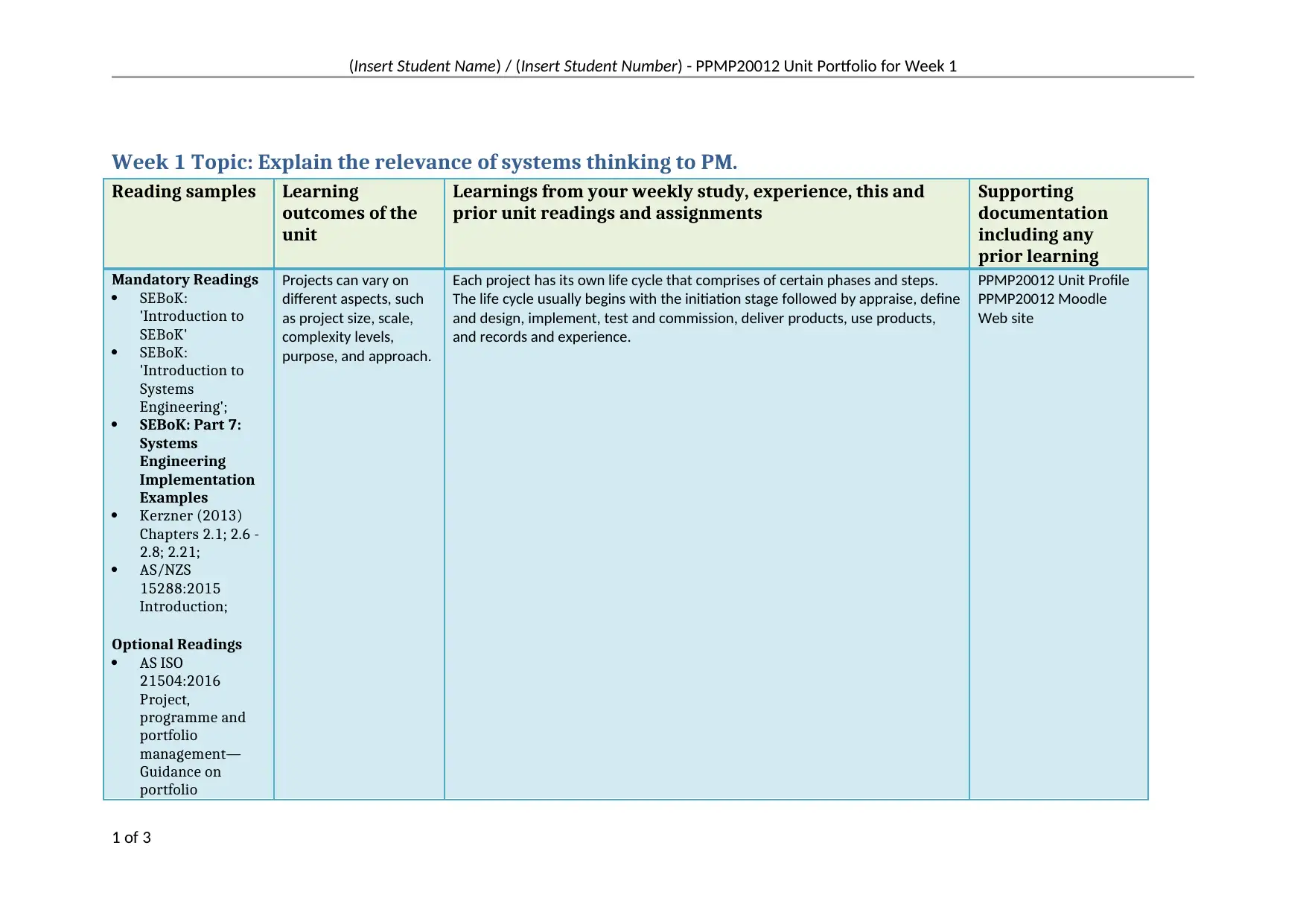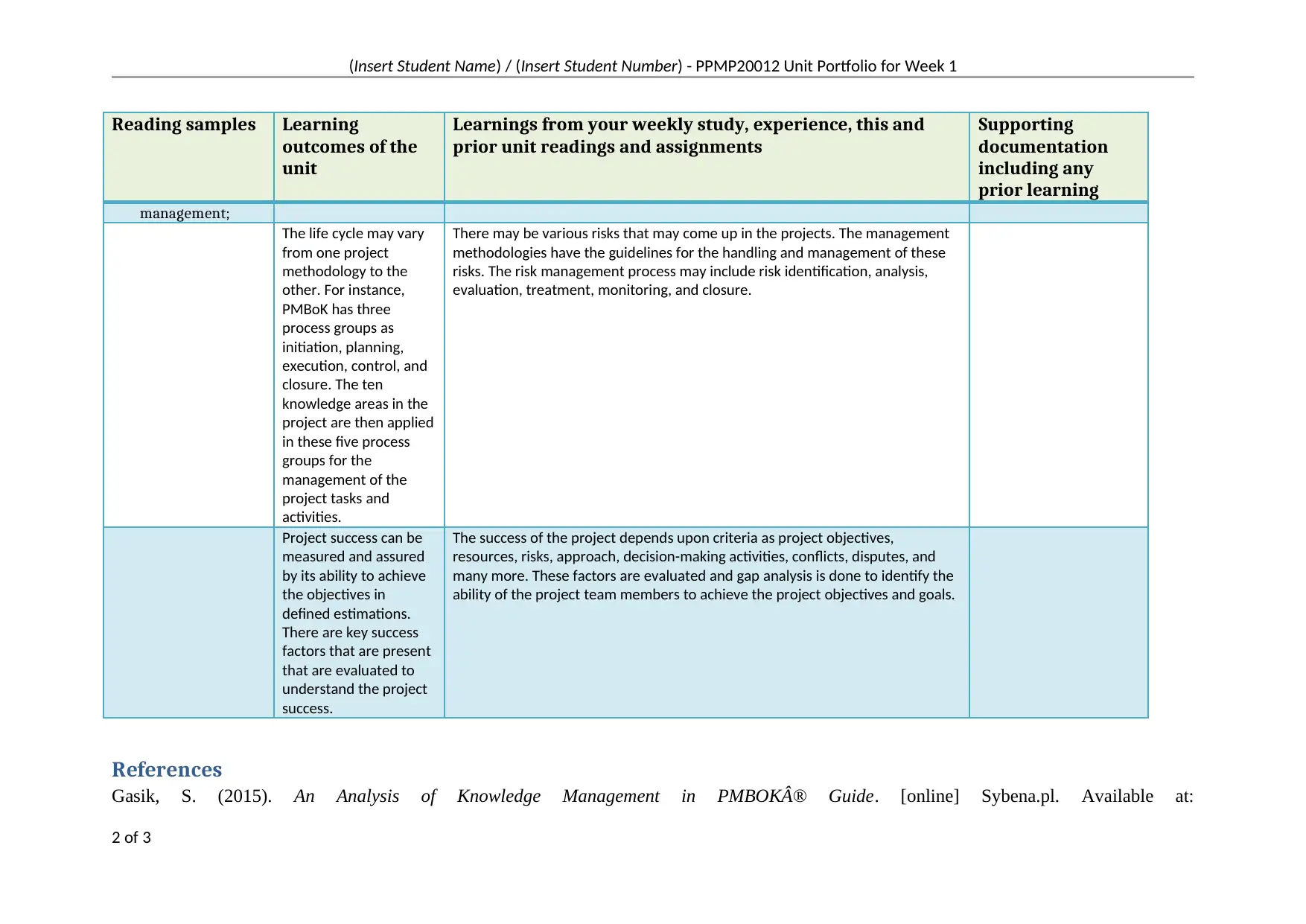Systems Thinking in Project Management: PPMP20012 Week 1 Report
VerifiedAdded on 2021/04/24
|3
|465
|71
Report
AI Summary
This report explores the application of systems thinking within project management, emphasizing the project lifecycle, risk management, and project success factors. It delves into the phases of a project lifecycle, from initiation to closure, and highlights the importance of understanding project objectives. The report addresses the role of risk management processes, including identification, analysis, evaluation, and treatment, to ensure project success. It also examines key success factors and the evaluation of project team members' ability to achieve goals. References include readings on systems thinking and project management methodologies, such as PMBOK and relevant standards. This analysis provides a comprehensive overview of systems thinking's significance in achieving project goals and managing potential challenges.
1 out of 3









![[object Object]](/_next/static/media/star-bottom.7253800d.svg)